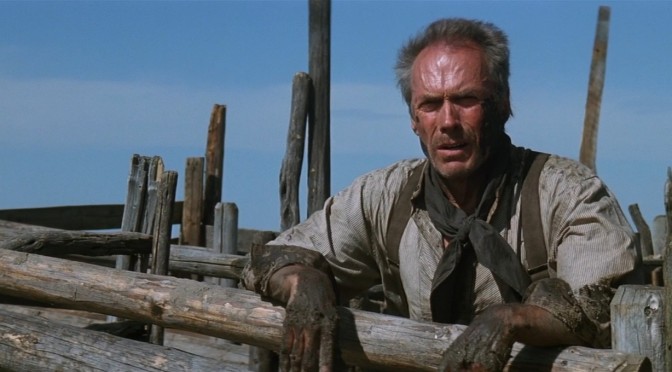If you analyze screenplays and films you are bound to find commonalities that exist among the ones that are successful and the ones that aren’t. A consistent commonality I see time and time again is that of character. In particular, three ubiquitous yet distinguishing features that all compelling characters seem to share in successful screenplays and films.
What makes these three characteristics so significant is their respective psychological effects that they have on an audience, as well as their functional effects on story. In short, all three characteristics contain a universal principle that resonates with us as individual characters ourselves. Let’s touch on each one of them…
DISTINCTION
Distinction is the idea of difference. It’s what makes your character different and unique to the audience. People by nature are organically drawn to anything that is new or different – sights, sounds, experiences, etc. We’re actually predisposed to the concept of distinction without being conscious of it.
This psychology also plays out with respects to the characters in our screenplays. Distinction within a character is what piques our interest and causes us to want to know more about the person. It’s the unconscious prompt that draws us in to their world. And it can come in many different forms. It can be a specific personality, a contradiction, a talent, an aspiration, an idiosyncrasy, a job, a character flaw, or an amalgam of several things.
Ryan Gosling’s character in the film, Drive is a terrific example of this at play.
He’s a Hollywood stuntman who moonlights as a getaway driver. That flaw is what made him totally distinctive to us as an audience. It’s what draws us to him right from the get-go. It’s what generates the requisite intrigue that aroused our interest in him as a unique individual.
Or take Steve Carell’s character in the film, The 40-year-old virgin.
His distinction lies in the title itself. A normal, kindhearted man who has never had an intimate encounter with a woman. And not for some specific personal reason, but because he just gave up trying. To an audience that is curiosity Valhalla! It compels them to want to know more about him as a character.
Or think about Clint Eastwood’s character in the Academy Award ® winning film, Unforgiven.
He’s a former outlaw and killer who has been transformed by marriage. Being a repentant murderer trying to do right by his children by collecting a bounty, coupled with his violent past, is an aspiration and backstory that coalesced into a truly distinctive character. One that coaxed us into the story and caused us to want to know more about him.
EMPATHY
As people we connect with other people through empathy. Our innate ability to sense other people’s emotions, as well as to imagine what someone else might be feeling, is hardwired in us as humans.
When we see a child crying tears of joy as they reunite with their returning military mom or dad, and we notice ourselves choking up, that’s empathy. When we see someone struggling with a problem and feel a need help, that’s empathy.
Empathy is what moves us to share in another’s struggle, to really see the world through their eyes. It’s our capacity to identify with the feelings and concerns other people have. Studies have shown that recognizing emotion in others is a way we feel with other people. Meaning, empathy allows us to look at others and feel that they are somewhat like… well, us.
Understanding this facet of intrinsic human nature is the key that unlocks your character’s relatability to an audience. How so? Because in order for the audience to connect with your character, they have to connect with something in themselves that knows what your character is feeling. Simply put, your character gives you the ability to create empathy, and empathy allows the audience to personally connect to your character and their story.
Let’s go back to Ryan Gosling’s character in the film, Drive. His desire of wanting to help his male neighbor out of a violent situation, despite the fact that he’s falling in love with the man’s wife, is something we can empathize with. That sacrifice and emotional duality is what caused us to relate to him as a human being. It’s what propels a personal connection in us as an audience.
Or Steve Carell’s character Andy in, The 40-year-old virgin. After learning that he’s still a virgin, his friends rekindle a desire in him to get back into the dating game again. However, he wants more than just intimate relations with a woman though, he’s looking for sincere companionship. And that’s a universal human need that we can all relate to. It’s what produces an empathetic connection in us as an audience.
Or Clint Eastwood’s character William Munny in, Unforgiven. Externally, his desire to provide a better life for his motherless children by doing one last killing and collecting a bounty allows us to easily empathize with him.
Internally, his fear of collecting a bounty by having to kill two cowboys, which in turn might cause him to revert back to being the man he used to be, generated an additional level of connective empathy. Not wanting to become the man he once was allowed us to relate to him on a much deeper level. What’s truly impressive is that we empathized despite the fact that he was a known thief and murderer. And that’s the power that empathy has on us.
IMPETUS
A character’s impetus is defined as the “why” behind their desire in the form of an internal motivation. It’s the driving force behind that desire. It’s the thing that is personally motivating them to attain their desire.
As previously mentioned, Ryan Gosling’s desire was wanting to help his neighbor out of a violent situation, despite the fact that he’s falling in love with the man’s wife. So what’s his impetus? What’s personally motivating him to want to attain that desire? What’s his why?
The answer lies in a key scene where Gosling had dinner with the male neighbor, the neighbor’s wife, and their young son. It’s here Gosling sees a hint of happiness in the man’s wife as her husband reminiscences on how they became a family.
It’s also here that we as an audience realize Gosling wants the man’s wife to be happy and he recognizes that part of her happiness lies in wanting to keep her family together because her son loves his father. And that’s the personal motivation that causes us – as an audience – to invest in Gosling’s character.
In The 40-year-old virgin, Steve Carell’s character wanted to get back into the dating game in hopes of finding companionship. So what’s his impetus? What his why? It’s rooted in the fact that he’s been alone for so long that he’s filled his world with inanimate man-child objects in order to make his life happy.
Only he has no one to share his stuff with. His only friends are an old couple he watches Survivor with. Wanting sincere companionship is the impetus that drove him to get back in the dating game. It’s what endeared us to him and made us invest in his story.
In Unforgiven William Munny’s desire was to provide a better life for his motherless children. So what’s the impetus behind that desire? What’s the thing that’s personally motivating him to attain that? What’s his why?
It’s a impetus that’s both simple and thoughtful enough for us to invest in. Like all parents he wants his children to have a better life than he had. And a better life than they’re currently living, which is eking out a struggling existence on a tiny, failing, pig farm in the middle of nowhere.
Distinction, empathy, and impetus are the psychological cornerstones in crafting a compelling character with emotional resonance. So as you begin to develop your character always remember…
Distinction draws the audience in.
Empathy makes the audience relate.
And Impetus keeps the audience invested.
ABOUT THE AUTHOR
Tim Long is a produced screenwriter who has sold, optioned, and pitched projects at the studio level and has had original screenplays in development with Academy Award ® winning and nominated producers. Mr. Long is also a nationally recognized screenplay consultant, as well as a former Professor and Head of the MFA Screenwriting Program at FSU’s College of Motion Picture Arts. He’s currently Founder of PARABLE, an innovative online screenwriting course.
OFFER for A3 readers only! PARABLE for $249 ($50 off the regular price) with promo code… a3discount
Website: https://ScreenplayStory.com/
Twitter: https://twitter.com/ScreenplayStory













 We love helping your growing in your writing career.
We love helping your growing in your writing career.

No Comments